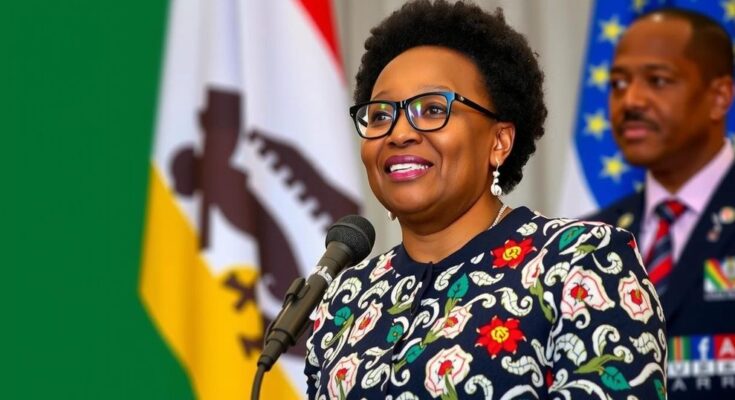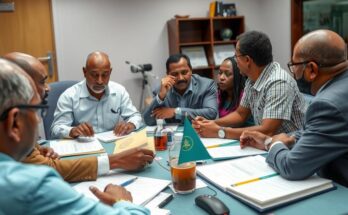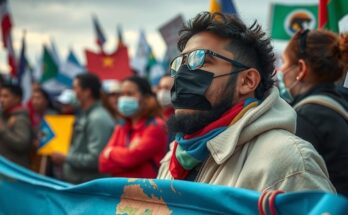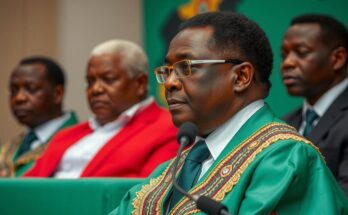Namibia has elected Vice-President Netumbo Nandi-Ndaitwah as its first female president, achieving over 57 percent of the votes in a disputed election. The process faced significant logistical challenges, leading to accusations from the opposition, IPC, of irregularities and voter suppression. Despite the milestone in gender representation, the election’s credibility is under scrutiny, with further challenges anticipated from the opposition regarding the election’s outcome.
Namibia has made history by electing Vice-President Netumbo Nandi-Ndaitwah as its first female president. At the age of 72, Nandi-Ndaitwah has risen to a position of leadership within the South West Africa People’s Organisation (SWAPO), which has governed the nation since its independence in 1990. She garnered a commanding 57 percent of the vote in a presidential election that was marred by logistical challenges and disputes over the electoral process.
The opposition candidate, Panduleni Itula of the Independent Patriots for Change (IPC), received 25.5 percent of the votes. The election faced significant challenges, including the necessity to extend voting due to inadequate ballot papers and long wait times for voters. Reports indicate that some citizens endured up to 12 hours of waiting, leading to frustration and claims of voter suppression from the IPC. Itula has declared that his party will not acknowledge the election results, citing numerous irregularities.
Additionally, an organization of human rights lawyers monitoring the election observed that delay issues were widespread and likely intentional. The Electoral Commission of Namibia acknowledged several failures including the shortage of ballot papers and the overheating of electronic devices used for registration, which contributed to the chaotic voting process.
The election of a female president in Namibia marks a significant milestone for the country and represents a shift in political dynamics within the region. Historically led by male leaders, the elevation of Netumbo Nandi-Ndaitwah not only symbolizes progress in gender representation but also highlights the ongoing political tensions in Namibia stemming from a disputed election process and concerns over electoral integrity. The South West Africa People’s Organisation (SWAPO) has been the dominant political force in Namibia since it gained independence in 1990, and this election reflects both the continuation of that legacy and the challenges posed by opposition parties seeking reform.
The election of Netumbo Nandi-Ndaitwah as Namibia’s first female president is a pioneering achievement for women’s leadership in the region. However, the surrounding controversy regarding the electoral process has sparked significant debate about the integrity of the election. The opposition’s refusal to accept the results and allegations of logistical failures by the Electoral Commission underscore the need for a thorough review of the electoral systems in place to ensure fair and transparent elections in the future.
Original Source: www.nigerianeye.com




